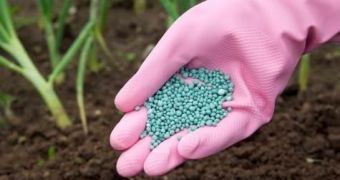A research concerning China levels of nitrogen pollution has recently brought forth some troubling results. To put it in a nutshell: the country's nitrogen pollution has increased by roughly 60% in a period of just 30 years, i.e. between 1980-2010.
This study, whose findings were published in the scientific journal Nature, argues that, within said time frame, China went from an annual bulk deposition of nitrogen of "just" 13.2 kilograms per hectare, reported in the 1980s, to an annual bulk deposition of nitrogen of 21.1 kilograms per hectare, reported in the 2000s.
According to Mongabay, the researchers who pieced together this research maintain that, "These levels are much higher than those observed in any region in the United States, and are comparable to the maximum values observed in the United Kingdom and the Netherlands when N deposition was at its peak in the 1980s."
However, the aforementioned countries had since made significant progress towards improving on their ecological footprint, whereas China appears to be a tad reluctant towards the idea that efforts must be made in order to curb nitrogen pollution.
"Clearly, nitrogen deposition has increased significantly in China and has affected both non-agricultural and agricultural ecosystems."
"So far, China’s economic growth model has relied mainly on the consumption of raw materials, and it has caused large anthropogenic reactive nitrogen emissions in addition to other environmental perturbations," the researchers write.
For the most part, China's causing this much nitrogen pollution comes as a direct result of its developing its agriculture and using ever increasing amounts of fertilizers, of its beginning to grow more livestock and of its burning large amounts of coal.
Furthermore, it is being said that an increase in the number of people owning cars in this country has also played its fair share in shaping out this pollution spike.
"It is time for China and other economies to take action to improve N-use efficiency and food production in agriculture and reduce Nr emissions from both agricultural and non-agricultural sectors. These actions are crucial to reducing N deposition and its negative impact locally and globally," the researchers urge.

 14 DAY TRIAL //
14 DAY TRIAL //